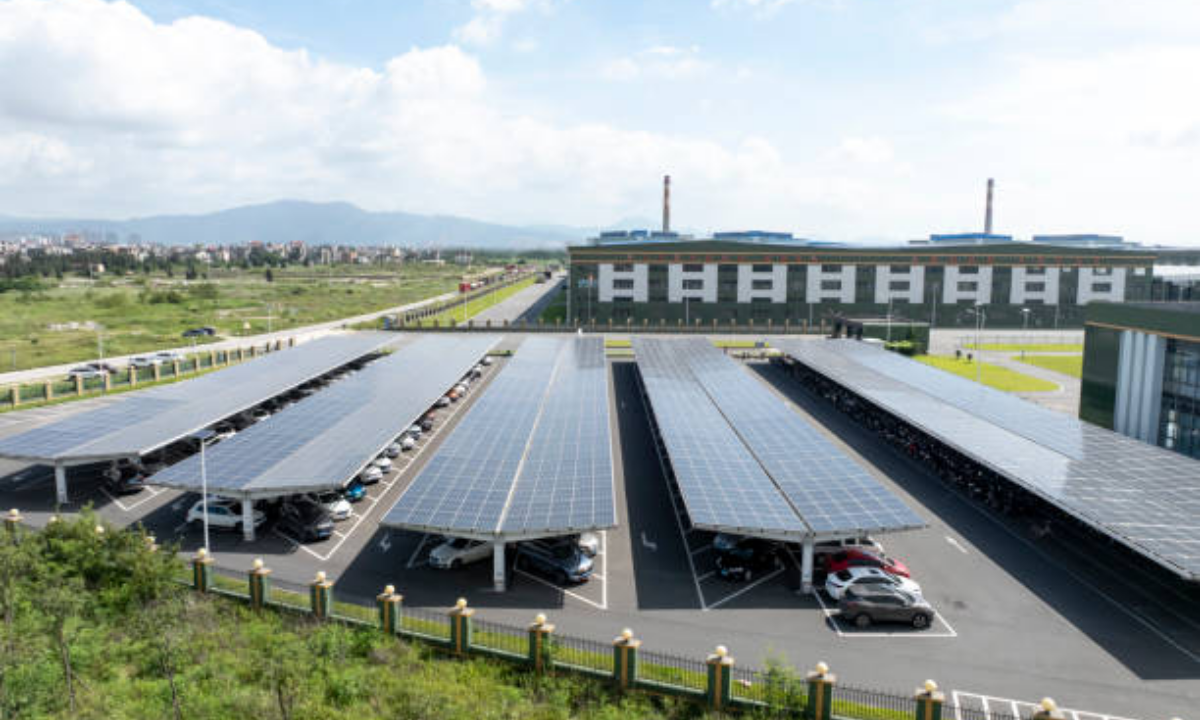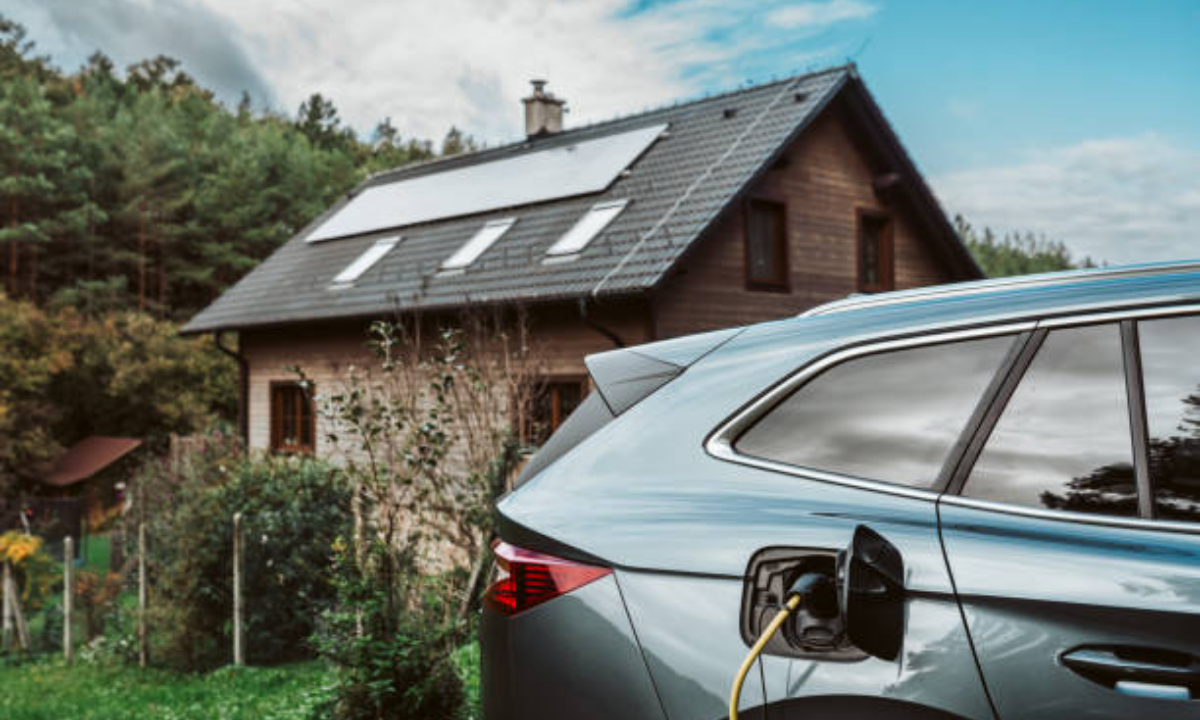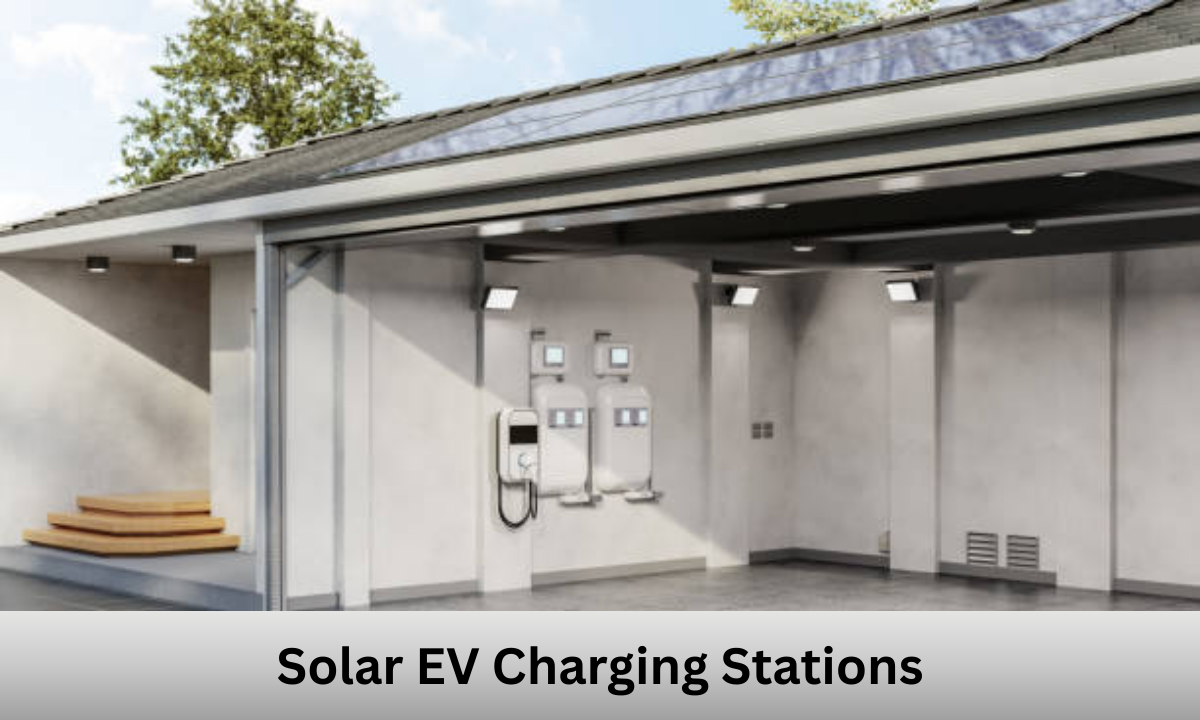EV charging stations are no longer just a convenience for electric vehicle owners; they’re becoming a necessity. As more people make the switch to EVs, the demand for clean, reliable, and fast charging solutions is skyrocketing.
At Shobha Globs, the future of mobility lies in combining renewable energy with advanced charging technology. And that’s where solar-powered EV charging stations come in, a solution that is sustainable, cost-effective, and forward-thinking.
In this blog, we’ll explore what these stations are, the types of EV charging stations available, how EV charging with solar panels works, the state of EV charging infrastructure in India, the potential of the EV charging station business in India, and much more. By the end, you’ll know exactly why this technology is shaping the future, and how you can be part of it.
Why Solar-Powered EV Charging Stations Are the Future

Traditional EV chargers pull electricity from the grid, which may still rely heavily on fossil fuels. This means that even if your car runs on electricity, the source of that electricity may not be clean.
Solar-powered EV charging stations solve this by generating electricity directly from the sun, making the charging process entirely clean and sustainable.
Benefits include:
- Lower operational costs over time – Once installed, solar panels have minimal maintenance costs.
- Independence from fluctuating grid electricity prices – No more worrying about rising tariffs.
- Reduced carbon footprint – Zero emissions during the charging process.
- Potential to operate in remote or off-grid locations – Ideal for rural or highway setups.
Did you know? According to the International Energy Agency (IEA), EVs could make up 30% of all vehicles worldwide by 2030, which means charging demand will skyrocket.
How EV Charging with Solar Panels Works

It’s a simple yet powerful process:
- Solar panels capture sunlight and convert it into electricity.
- The electricity flows into a battery storage system or directly powers the charging unit.
- When a vehicle plugs in, the stored or immediate power is transferred to the EV battery.
Example:
Imagine a corporate office with rooftop solar panels and EV charging points in the parking lot. Employees charge their vehicles during the day using the sun’s energy. No extra load on the main grid, no extra cost for the company in the long run.
Types of EV Charging Stations
There are several ways to charge an EV, and knowing the differences is key when choosing the right setup.
| Type | Charging Speed | Use Case | Power Source |
| Level 1 | Slow (8–12 hours) | Home use, overnight charging | Standard AC outlet |
| Level 2 | Moderate (4–6 hours) | Residential complexes, offices | 240V AC connection |
| DC Fast Charging Stations for Electric Vehicles | Rapid (30–60 minutes) | Highways, commercial hubs | Direct DC power |
Pro Tip: Businesses can attract more customers by installing fast charging stations for electric vehicles at their premises. This is especially true for restaurants, shopping malls, and cafes where people spend at least 30–60 minutes.
EV Charging Infrastructure in India
India’s EV charging network is still in its early stages, but it’s expanding quickly thanks to government incentives, private investments, and rising EV adoption.
Current Highlights:
- Urban Expansion: Cities like Bengaluru, Delhi, and Mumbai are rapidly adding charging stations.
- Solar Integration: Due to India’s sunny climate, solar-powered setups are becoming more common.
- Government Support: Schemes like FAME II offer subsidies for setting up charging infrastructure.
Stat: India had around 10,000 public charging stations by the end of 2024, and this number is projected to grow 10x by 2030.
Opportunities in the EV Charging Station Business in India
If you’re considering entering this space, now is the time. The market is projected to grow exponentially over the next decade.
Business Models Include:
- Public charging stations – Located at malls, fuel stations, and parking lots.
- Private stations – For corporate fleets or residential societies.
- Hybrid models – Combine solar generation with grid backup for reliability.
Example: A shopping mall installs solar-powered chargers. Customers shop while their cars charge, and the mall earns extra revenue from charging fees while enhancing its eco-friendly brand image.
EV Charging Stations Manufacturers in Bangalore
Bangalore is a hub for EV innovation, home to several companies developing advanced EV charging technology.
Shobha Globs, for instance, focuses on sustainable infrastructure solutions—helping businesses, governments, and communities adopt renewable energy and clean mobility. With their expertise in solar-powered charging setups, they’re paving the way for eco-friendly transportation across India.
Tips for Installing Solar-Powered EV Charging Stations
- Location is key – Maximize sunlight exposure for your solar panels.
- Plan for scalability – EV adoption is increasing, so leave room for more chargers.
- Use quality equipment – Reliability ensures customer trust and repeat usage.
- Integrate smart systems – Mobile apps for booking, payments, and availability tracking make charging more convenient.
- Leverage government incentives – Take advantage of subsidies and tax benefits to reduce setup costs.
Global Trends in Solar EV Charging
- Europe: Countries like Norway have integrated solar carports with EV chargers in public spaces.
- USA: California is leading with large-scale solar-powered highway charging stations.
- Asia: Japan and South Korea are focusing on ultra-fast solar-powered chargers for public transport fleets.
India can adapt and localize these ideas to match our climate, energy needs, and mobility patterns.
FAQs About Solar-Powered EV Charging Stations
Q1: Are solar-powered EV charging stations reliable during cloudy days?
Yes. With battery storage or a hybrid grid connection, they can still supply power consistently.
Q2: How much space do I need for a setup?
It depends on the number of chargers and the solar capacity, typically a few hundred square feet for small setups.
Q3: Is it expensive to install?
The initial cost is higher than traditional chargers, but operational savings and government incentives make it profitable in the long run.
Q4: Can I charge my EV at night using solar power?
Yes, if your system includes battery storage to hold excess energy generated during the day.
Q5: How fast can a solar-powered charger charge my EV?
It depends on the charger type; fast charging stations for electric vehicles can fully charge in under an hour, while slower chargers take several hours.
The Road Ahead
The combination of solar energy and EV charging is more than just a trend—it’s the blueprint for sustainable transportation. As EV adoption rises, clean charging solutions will play a vital role in reducing our carbon footprint.
At Shobha Globs, trusted EV Charging Stations Manufacturers in Bangalore, we’re committed to building a cleaner, greener future by supporting innovative EV and solar projects. Together, we can drive towards a mobility system that’s both sustainable and accessible for everyone.

